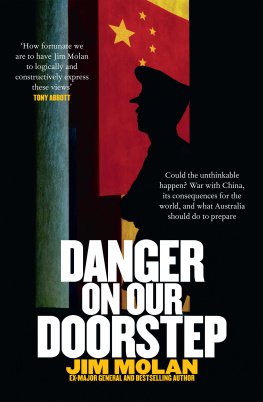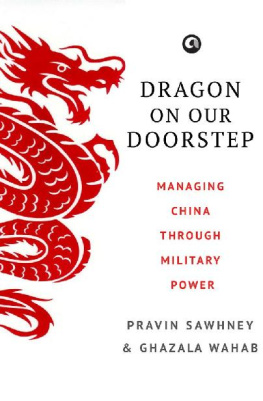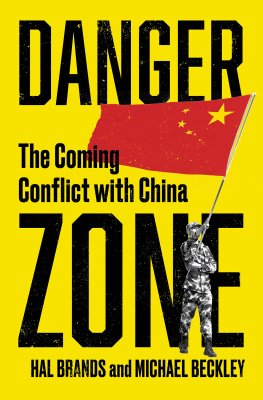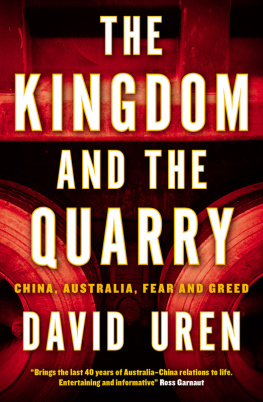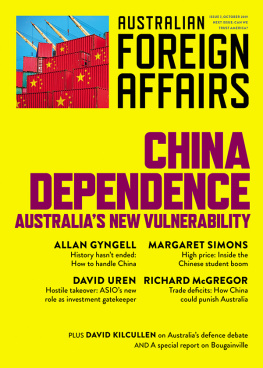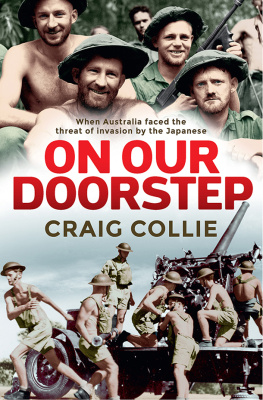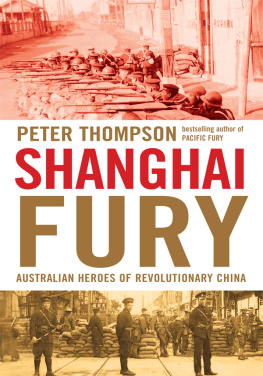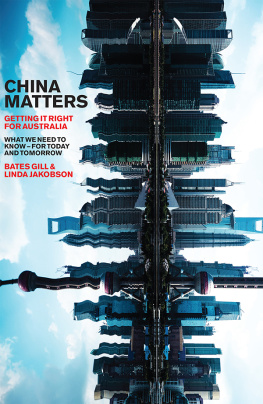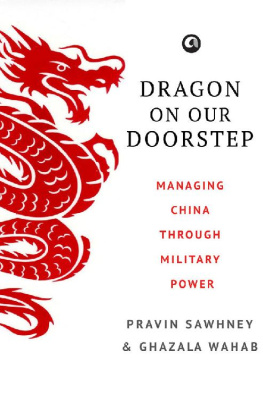Jim Molan - Danger On Our Doorstep Could Australia Go To War With China
Here you can read online Jim Molan - Danger On Our Doorstep Could Australia Go To War With China full text of the book (entire story) in english for free. Download pdf and epub, get meaning, cover and reviews about this ebook. year: 2022, publisher: HarperCollins, genre: Politics. Description of the work, (preface) as well as reviews are available. Best literature library LitArk.com created for fans of good reading and offers a wide selection of genres:
Romance novel
Science fiction
Adventure
Detective
Science
History
Home and family
Prose
Art
Politics
Computer
Non-fiction
Religion
Business
Children
Humor
Choose a favorite category and find really read worthwhile books. Enjoy immersion in the world of imagination, feel the emotions of the characters or learn something new for yourself, make an fascinating discovery.
Danger On Our Doorstep Could Australia Go To War With China: summary, description and annotation
We offer to read an annotation, description, summary or preface (depends on what the author of the book "Danger On Our Doorstep Could Australia Go To War With China" wrote himself). If you haven't found the necessary information about the book — write in the comments, we will try to find it.
Jim Molan: author's other books
Who wrote Danger On Our Doorstep Could Australia Go To War With China? Find out the surname, the name of the author of the book and a list of all author's works by series.
Danger On Our Doorstep Could Australia Go To War With China — read online for free the complete book (whole text) full work
Below is the text of the book, divided by pages. System saving the place of the last page read, allows you to conveniently read the book "Danger On Our Doorstep Could Australia Go To War With China" online for free, without having to search again every time where you left off. Put a bookmark, and you can go to the page where you finished reading at any time.
Font size:
Interval:
Bookmark:
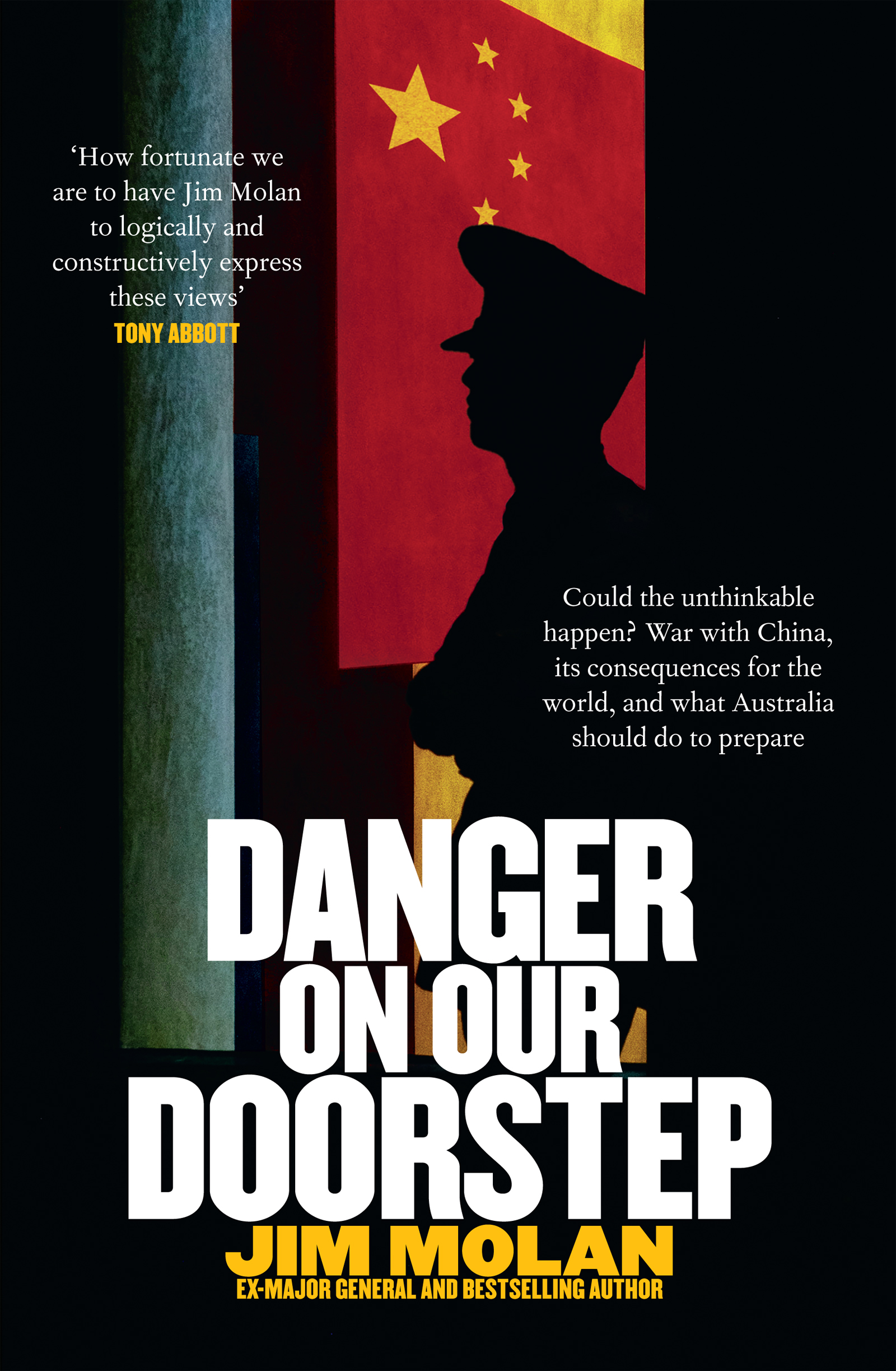
To my children, Sarah, Erin, Felicity and Michael,
and my grandchildren, Sophie, Angus, Eliza, Grace
and Andrew, with love and in the hope that your
Australia will remain one and free, and also
sovereign, safe and prosperous.
It is a pleasure to write this foreword to Danger on Our Doorstep. Although Id been aware of Jim Molan for quite some time, I first got to know him well during the RuddGillardRudd government of 200613. We were in opposition. After we assumed government, against all professional advice and media commentary, and working with Immigration Minister Scott Morrison, Jim provided the means whereby a simple political policy of Stop the Boats was converted into the strategy that became Operation Sovereign Borders. This was no easy accomplishment. The Rudd and Gillard governments had proved over six years how difficult it was to make such a conversion, and not one public voice was of the opinion that it was possible. The combination of Scott Morrison and Jim Molan was most effective, not just in formulating policy and strategy, but also in explaining the policy and then making it work in government.
Jim has brought the same insight to the Parliamentary Joint Committee on Intelligence and Security (PJCIS). Again, hes been ahead of his time, arguing for the formation of the Home Affairs portfolio. Jim was proved right.
Danger on Our Doorstep is a serious work by Jim Molan. It is a manifestation of all Jims qualities. With clarity, Jim deals with some of the most complex and sensitive issues facing our country and he has drawn on a lifetime of experience. As a member of the Australian Defence Force (ADF), Jim has thought and talked about war for 40 years. He has run a real war as Chief of Operations, primarily for the US forces in Iraq in 200405. He has participated in several other operations or activities in our region over those decades, in and with our regional neighbours. And, as a politician and a diplomat, he has been exposed to the complexities of foreign and domestic policy. I have to say, I do not agree with all of Jims assessments in this book, but even this cursory review of his significant experience and demonstrable capabilities in the defence and national security spheres is enough to show that we should at the very least listen to and debate his arguments.
To deter war, the first step is to understand the problem. Jim makes the argument that due to a reliance on the US for security and prosperity, Australia is lacking resilience in a period of increased strategic competition in our region. I will let Jim defend his assessments, except to say that, in launching the Defence Strategic Update in July 2020, the government outlined how rapidly Australias strategic environment was deteriorating. It was the recognition of this deterioration and the rapid militarisation of our region that reaffirmed the need for Australia to invest in high-end capabilities that bolster our deterrence and better prepare us to respond in the event of conflict. This in turn led the government to explore the feasibility of acquiring nuclear-powered submarine technology, which culminated with the establishment of AUKUS, the trilateral security pact between Australia, the UK and the US.
In this book, Jim Molan describes his view of the military options that both China and the US would have available should China move to achieve regional dominance. As a military tactician, Jim is aware that it is only through understanding the nature of modern warfare that Australia can prepare correctly to defend its sovereignty and regional stability. Uniquely, Jim links high strategy, concepts of how to fight campaigns, and low-level tactics, all of which must be aligned to be successful in war.
Danger on Our Doorstep reflects on the challenges of international relations within the Indo-Pacific and does so in some detail. A key recent influence on our thinking in this regard has been the RussiaUkraine War, which has shown that very bad things can happen in this world and that they can happen quickly and with great violence, and that all countries have an obligation to be prepared for them. Jim is able to explain these complex issues in the simplest terms, which is a valuable skill for any politician or author and one recognised by the media, who compete for his valuable commentary, and by the Coalitions base.
Given the sensitive and classified nature of the issues Jim addresses from his unclassified base of knowledge and experience, it will always be difficult for a minister, especially a defence minister, to express an opinion on the merits of a work like Danger on Our Doorstep. But I will conclude this foreword by asking, first, is there anyone as credible as Jim to address these issues? And, second, how important is it to appreciate that we live in a country that not only tolerates different views and opinions, but exuberantly defends our right to express them? In that context, this book also represents some of the priceless values we believe are worth fighting for in Australia.
Peter Dutton, April 2022
We had a saying when I was in the military that bad things happen at night, in rain and on the corners of four maps. It refers to a time when wars were fought by commanders looking at maps on paper. In fast-moving operations, you often moved off one map and onto another very quickly, so you needed lots of them. If you found yourself at a corner of one map, it was almost guaranteed that the enemy would have the temerity to be on one of the three adjoining maps, and commanders sometimes had to join maps together with sticky tape, so they ended up about the size of a bedsheet.
I spent a lot of my military life as a light infantryman, often travelling to battles by foot. Everything I needed I carried on my back, so too many maps were a real burden. The only thing worse, though, was not knowing where you were, especially if you had to call for support.
Back in the dark ages the 1980s I did an exchange posting to a mechanised British battalion on the NATO front line in northern West Germany. We could see Russian and East German troops across the border and hear them on our radio frequencies. We travelled in tracked armoured personnel carriers, in a total lack of comfort, but our view was that a bad ride was far better than a good walk. As second-in-command of a company of these armoured vehicles, I had hundreds of paper maps. We had to be prepared to move just about anywhere in northern Europe.
Times have changed. The digitisation of just about everything except the rifle and the bayonet has meant that maps can be carried electronically or downloaded to individual commanders when required. Nowadays they are displayed on the equivalent of a mobile-phone-sized personal computer, worn on a soldiers body. All information is captured from space in digital form, then disseminated through the internet or an intranet.
Over 20 years after my time in West Germany, when I was Chief of Operations for the Coalition Forces in Iraq, all maps were digitised and displayed on screens. Through sheer habit, I still tended to print certain maps out and jam the paper copy in the map pocket of my pants, just in case the system in my vehicle, known as Blue Force Tracker, failed. Invariably, I would find the paper map unused in my pocket after a day or so, throw it away and replace it with another paper copy.
To produce the maps we worked with in Iraq, every part of the country was put through a process of mensuration. I pretended to know what
Font size:
Interval:
Bookmark:
Similar books «Danger On Our Doorstep Could Australia Go To War With China»
Look at similar books to Danger On Our Doorstep Could Australia Go To War With China. We have selected literature similar in name and meaning in the hope of providing readers with more options to find new, interesting, not yet read works.
Discussion, reviews of the book Danger On Our Doorstep Could Australia Go To War With China and just readers' own opinions. Leave your comments, write what you think about the work, its meaning or the main characters. Specify what exactly you liked and what you didn't like, and why you think so.

